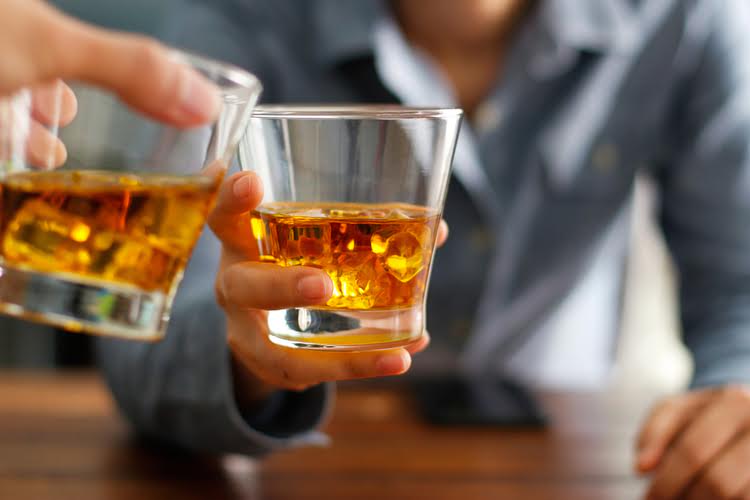Content
- A Life Free From Addiction Is Possible
- Does Alcohol Make You Gain Weight?
- An Alternative to Booze for Anyone Looking to Lose Weight
- Worst Types of Alcohol for Weight Loss
- The Truth About Beer and Your Belly
- Rewarding yourself when trying to lose weight: 18 tips
- Alcoholism: signs, causes, and treatments
Alcohol can interfere with your natural fat-burning ability by harming the organs involved in the digestive tract. The stomach, liver, and intestines are crucial to your body getting the nutrients it needs. Heavy alcohol consumption can impair their function, causing your digestive system to be less efficient at breaking food down. It’s not necessary to eliminate alcohol to lead a healthy lifestyle and lose weight, but it’s essential to be mindful of our alcohol intake and reduce binge drinking. First things first, let’s talk about what alcohol does to your body. Alcohol has no nutritional value, so your body does not use it as it would a carb, fat or protein. When you consume alcohol, your body stops all other metabolic processes (i.e. metabolizing and burning food for fuel) in order to rid your body of the toxin.
There, she specializes in weight management, nutrition counseling, and diabetes, and has for over 15 (!!) years. Like us at Aaptiv, she has a heart for running 5-10Ks, lifting weights, and hiking (which, wouldn’t we all if we lived near LA?). We’ve all been told to “slow down on the booze” and “lay off the cocktails” (and only ignored it half the time!). It’s unquestionably one of the unspoken Ten Commandments of Weight Loss.
A Life Free From Addiction Is Possible
Aside from the immediate influence on appetite that comes from alcohol consumption, there are also effects on energy storage. Alcohol inhibits fat oxidation, suggesting that frequent alcohol consumption could lead to fat sparing, and thus higher body fat in the long term . However, the results of the various cross-sectional and longitudinal studies examined in this review do not unequivocally support such a hypothesis. Finally, there is also evidence to suggest that traits that predispose individuals to binge drinking may also predispose to binge eating . Alcohol is high in calories, can lead to poor food choices, and can negatively affect many parts of your body. One drink every once in a while is unlikely to cause problems, but excessive alcohol consumption may lead to weight gain and obesity. You’ve heard having a glass of wine with dinner is good for your heart, right?
Hormones that affect weight and how to improve them – India TV News
Hormones that affect weight and how to improve them.
Posted: Tue, 20 Dec 2022 06:56:44 GMT [source]
A review by Yeomans highlights some of the potential explanations for alcohol’s influence on weight gain or obesity. First, as previously mentioned, energy from alcohol appears to be additive to energy from other sources .
Does Alcohol Make You Gain Weight?
Fan AZ, Russell M, Stranges S, Dorn J, Trevisan M. Association of lifetime alcohol drinking trajectories with cardiometabolic risk. Belly fat is the most harmful fat in your body, linked to many diseases. Here are 6 simple ways to lose belly fat that are supported by science. Excess alcohol consumption can lead to what is known as alcoholic fatty liver.
- Alcohol is high in calories, can lead to poor food choices, and can negatively affect many parts of your body.
- That is why alcohol detox and alcohol withdrawal treatment is administered by medical professionals.
- Weight gain is just one of the many health considerations to keep in mind when it comes to your alcohol use and limiting how much you drink.
- “This is why some alcoholic drinks are called an aperitif,” Dr Zoe tells us.
- Many of the effects of drinking every day can be reversed through early intervention.
The body weight determines the amount of space through which the alcohol diffuses in an individual’s body. For example, a person who weighs 180 lbs will have a lower blood alcohol concentration than a person who weighs 140 lbs. Given that it takes around an hour for our liver to process just one unit of alcohol, that’s a lot of fat burning time that’s getting wasted while we are. False and true pre-treatment predictors of weight loss in obese patients starting a program for lifestyle change. Flechtner-Mors M, Biesalski HK, Jenkinson CP, Ditschuneit HH. Effects of moderate consumption of white wine on weight loss in overweight and obese subjects. Romeo J, González-Gross M, Wärnberg J, Díaz LE, Marcos A. Does beer have an impact on weight gain? Beulens JW, van Beers RM, Stolk RP, Schaafsma G, Hendriks HF. The effect of moderate alcohol consumption on fat distribution and adipocytokines.
An Alternative to Booze for Anyone Looking to Lose Weight
It’s in everyone’s best interest to keep their metabolism in top working order. The good news is that when you start losing weight, you tend to lose it in the midsection first. “Visceral fat is more metabolically active and can be broken down quicker than other fat,” Jensen says, “so it is usually the first to go, especially when you have a lot to lose.”

“This is why some alcoholic drinks are called an aperitif,” Dr Zoe tells us. “They are intended to stimulate the appetite before a meal.” Drink less, and you’ll probably eat less too.
Worst Types of Alcohol for Weight Loss
Overall, the available experimental evidence reviewed in this article suggests that moderate intake of alcohol does not lead to weight gain. The systematic review by Bendsen et al. [3•] suggests that this trend is less likely in experimental studies examining beer consumption exclusively. A modest increase in weight of one kilogram over a 10 week period seems insignificant but over five years this could result in up to 26 kg of weight gain if no compensation takes place. To our knowledge, there does not appear to be any experimental does alcohol make you gain weight evidence specifically testing the effects of heavy/binge drinking, or of drinking spirits or a combination of alcohol sources on weight gain/obesity. A summary of the studies examined in this article, organized by the trend between alcohol and weight gain/obesity can be found in Table1. Alcohol contains empty calories and doesn’t provide any nutrients for your body, according to the Cleveland Clinic. According to a previous study, the more alcohol you consume, the more likely you are to make poor food choices.
Does alcohol cause belly fat?
Alcohol can contribute to excess belly fat
The “beer gut” isn't just a myth. Foods high in simple sugars, such as those found in candy, soda, and even beer, are also high in calories. Extra calories end up stored as fat in the body. Consuming foods and drinks high in sugar can quickly lead to weight gain.
If you’re looking to gain weight, scientifically the best approach is to drink a lot and eat a lot of fat. Alcohol also lowers inhibitions, which encourages drinkers to consume more.
